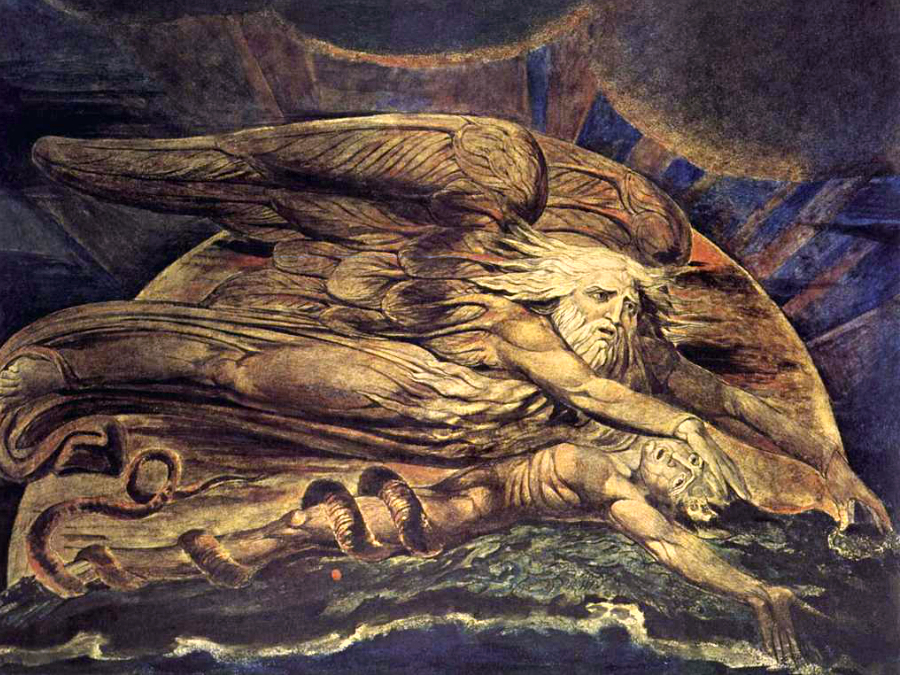
The beginning of the Bible on why we are made like this
June 17, 2022
Raymond Vincent: The Great Gulf: Wealth, Charity, and Relationships
June 27, 2022This is Part 2 of a talk I gave to Guiseley Mothers’ Union last month. It covers ground I’ve blogged on before but it’s central to my understanding of why life is like this. Part 1 is here .
This post focuses on a well-known passage in the third chapter of Genesis:
Now the serpent was more crafty than any other wild animal that the Lord God had made. He said to the woman, ‘Did God say, “You shall not eat from any tree in the garden”?’ The woman said to the serpent, ‘We may eat of the fruit of the trees in the garden; but God said, “You shall not eat of the fruit of the tree that is in the middle of the garden, nor shall you touch it, or you shall die.” ’ But the serpent said to the woman, ‘You will not die; for God knows that when you eat of it your eyes will be opened, and you will be like God, knowing good and evil.’ So when the woman saw that the tree was good for food, and that it was a delight to the eyes, and that the tree was to be desired to make one wise, she took of its fruit and ate; and she also gave some to her husband, who was with her, and he ate (Genesis 3:1-6).
Almost a thousand years after this text was written, church leaders decided that the serpent was the devil in disguise, God’s plans went wrong and sin entered the world permanently. Before then, Jews never interpreted it like this. In the whole of the Old Testament there is no devil. The story, like Chapter 2, is still in the form of a bedtime story. You may not remember but you have had stories read to you about talking foxes and rabbits going to school. Those stories, if they were good ones, helped you understand what human life is like. In this kind of narrative there is nothing unusual about a talking snake. What is being described is what life is always like. We get tempted.
The timing changes. We get the conversation between the serpent and Eve, but then the story pauses. The Hebrew Scriptures hardly ever talk about what is going on in the mind. But they do here. Before we find out what happens next, we stop and focus on what is going on in Eve’s mind.
When the woman saw… that the tree was good for food… and that it was a delight to the eyes… and that the tree was to be desired to make one wise…
Can you taste that fruit in your mouth? The text invites us to sympathise. It invites us to think ‘Yes, I would have taken a bite’.
That’s the point. It’s the gap between what we do and what we could have done that would have been better. It’s all so understandable. This is why there is so much evil in the world.
The first act of disobedience leads to the second, and the second to the third. Genesis 4 has the first murder. Then the whole of human society becomes evil and we get the flood.
This is classic Hebrew monotheism. This is what Judaism, Christianity and Islam have all been built on. Of course not all Jews, Christians and Muslims agree with it. There are many different versions of these faiths today. But here is the core insight that distinguishes our tradition.
It gives us good news and bad news. The bad news is: we humans are responsible for all that is wrong. We don’t like to know this. We usually prefer to think the people we hate – Adolf Hitler, Vladimir Putin or whoever – are completely different from us. Animals. Demons.
When we think like this we need some other explanation for evil. Perhaps God is evil and creates those demons to spite us. Or perhaps God is powerless to do anything about them. So we find it impossible to believe in the kind of God described in the beginning of the Bible.
But God made our human hate-figures just like us, with freedom to choose. When we demonise them we are doing what God does not do.
The good news is: because humans are responsible, we can do something to put it right. Life doesn’t have to be as tragic as it is. All the evil and suffering don’t have to happen. The world has been designed to be a blessing for everyone, and a blessing it could be.
Here is the challenge we are given. We have evolved as animals with instincts and emotions driving actions. Some of our instincts are self-centred. Other instincts are to care for others.
Evolutionary psychologists study the process by watching the behaviour of chimpanzees. As we evolved, over the millions of years, we acquired the ability to think about what we wanted, to develop rules of behaviour, to condemn other people for what they did, and eventually to reflect on what we did and whether it was the right thing. It’s still easier to find fault in other people’s actions than to find fault in our own. This is why praying is important.
You and I are somewhere along that long physical and moral evolution. We are on the way, somewhere between amoebas and angels. It really is open to us, collectively, to do better or to do worse; to care more for the common good at the expense of our self-centredness, or to care more for ourselves at the expense of the common good.
This, I believe, is how God has designed us. By giving us freedom to choose between self-centredness and the common good, God allows us to cause suffering to ourselves and other people; and thereby makes it possible for us to become holy like God. The second century bishop Irenaeus put it like this:
If, then, thou art God’s workmanship, await the hand of thy Maker which creates everything in due time; in due time as far as thou art concerned, whose creation is being carried out. Offer to him thy heart in a soft and tractable state, and preserve the form in which the Creator has fashioned thee, having mastery in thyself, lest, by becoming hardened, thou lose the impressions of his fingers. But by preserving the framework thou shalt ascend to that which is perfect, for the moist clay which is in thee is hidden there by the workmanship of God. He will cover thee over within and without with pure gold and silver.




